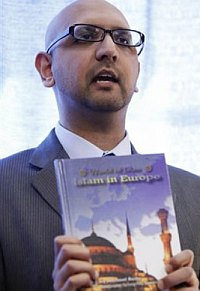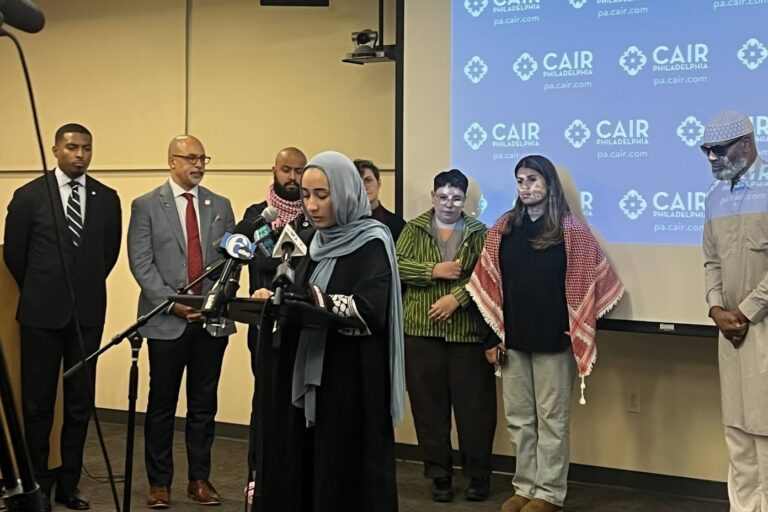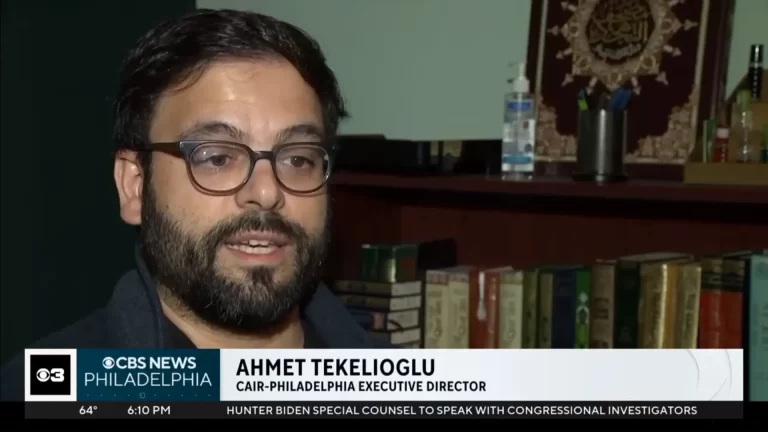![]()
by Zack Burgess
The Philadelphia Tribune

Poll finds discrimination since 9/11, but also satisfaction
Anniversaries are often remembered in 10-year intervals. And this one is no different, as the country braces for 10 years since two planes rammed into the World Trade Center; upsetting the very fiber of people throughout the country.
Americans around the globe will be glued to the television set, recalling every detail of this harrowing event. This includes Muslim Americans, who might have been more affected than anyone.
For many peace-loving Muslims, the pain of Sept. 11, 2001, is — and was — especially traumatizing.
“The attacks of 9/11 were definitely an attack on the American-Muslin Community,” said Moein Khawaja, executive director of the Council on American-Islamic Relations’ (CAIR) Philadelphia chapter. “I think the attacks tarnished … the Muslim community. In the aftermath, it produced an unnecessary hatred. But I believe that with the death of Osama bin Laden, I am confident we have seen an end to the terror that plagued this nation and the Muslim community. I feel like al-Qaida attacked me twice, once by murdering so many fellow citizens, but the second time by smearing my faith.”
And while Khawaja believes the threat of homegrown terrorism is minimal, he is worried about how American Muslims are perceived by the public. He believes Muslim American leaders are working vigorously to change the perception among the masses. This has led him to encouraged members within the community to speak up, be active citizens and describe who they are and what they stand for, rather than being defined by a culture of fear.
Ten years after 9/11, Americans are wrestling with their opinions of Muslims.
A new survey found that nearly half of Americans would be uncomfortable with a woman wearing a burqa, a mosque being built in their neighborhood or Muslim men praying at an airport. Forty-one percent would be uncomfortable if a teacher at the elementary school in their community were Muslim. And 47 percent of survey respondents said the values of Islam are at odds with American values.
The Public Religion Research Institute conducted the survey and issued a report in conjunction with the Brookings Institution, “What it Means to be American: Attitudes in an Increasingly Diverse America 10 Years after 9/11.”
“Americans are wrestling with fear, but on the other hand they’re also wrestling with acceptance,” said Robert P. Jones, CEO of the Public Religion Research Institute.
In addition, new information from the Pew Research Center shows that 55 percent of Muslim Americans believe that it is harder to be a Muslim in the United States since 9/11. However, the new data shows that even though the cards are stacked against them because of anti-Muslim slurs, Islam phobia, and harsh attitudes, more Muslims in America are expressing a higher level of satisfaction with their lives here.
Of the more than 1,000 Muslim Americans who were interviewed by The Public Religion Research Institute, 79 percent said they are satisfied with their personal lives in the United States.
They were also were more satisfied with their communities, neighborhoods and the country’s overall direction on Islamic issues, the report stated.
The new poll, which comes just days before the 10th anniversary of the 9/11 attacks, paints an interesting picture of the Muslim population whose members appear remarkably content with their surroundings despite harassment at the airport and public discrimination during the last ten years.
For the past 10 years after the attacks of Sept. 11, 2001, America’s uneasy, contradictory relationship with Islam and American Muslims has been on full display through congressional hearings, public rallies, websites and news headlines.
Jeffrey Haggray, pastor of Washington D.C.’s First Baptist Church, claims some organizations that monitor persecution of Christians around the globe are warning that the heated debates over Islam in the United States could have fatal repercussions for Christians living in majority-Muslim countries.
Needless to say, what happens in the U.S. could impact Christians in those Muslim countries in which they are already vulnerable.
“While we all celebrate freedom of speech in our nation, we would be engaging in denial if we did not acknowledge forthrightly that the acts of violence that are now surfacing against Muslims, mosques and other Islamic symbols are directly linked to the vitriolic and incendiary rhetoric and actions we have seen in recent weeks,” Haggray said to CNN. “We are duty-bound to publicly condemn these actions both as Americans and as people of faith.”
The latest findings about U.S. Muslim attitudes are broadly consistent with those of a major Gallup poll released earlier this month. That survey found that Muslims living in America are more tolerant for members of other faiths than any other major U.S. religious group.
Both surveys challenge efforts, primarily by right-wing Christian and Jewish groups in the U.S., to depict Muslims — and Islam as a religion — as fundamentally alien, if not actively hostile, to “Judeo-Christian” or “Western” values and U.S. society.
Mohamed Younis of the Abu Dhabi Gallup Center, which is affiliated with the United Arab Emirates’ constitutional monarchy, said reports like these show optimistic American Muslims share certain qualities.
“Muslims who tend to be thriving seem to be more fully engaged in their religious life, but also strongly identify with the United States as a place to live,” Younis said. “They show a picture of someone with less cognitive dissonance about being 100 percent Muslim and about being 100 percent American.”
Rabbi David Saperstein of the Religious Action Center of Reformed Judaism says Jewish Americans trust Muslims more than any other religious group.
“Jews view themselves as the quintessential victims of religious persecution in the history of the world over the last 3,000 years and therefore often identify with those who are subject to persecution and discrimination,” Saperstein said.
The Reason Foundation said there are Muslim scholars today who are also advocating revising their religious texts on issues ranging from women’s rights to blasphemy and apostasy. They are challenging the age-old clerical doctrine that the Koran’s earlier, more peaceful and tolerant verses are nullified by the later, more militant ones.
With Muslims accounting for nearly a quarter of the world’s population, the modernization of Islam and an understanding of the separation between church and state and what it has to do with democracy are the 21st century’s most urgent priorities.
“It confirms for us that as we reach out to Muslims, the community will reach back,” said Paul Montiero, associate director of the White House Office of Public Engagement.
Imam Mohamed Magid, president of the Islamic Society of North America, says the recent polls show how far Muslims have to go until they are fully accepted members of American society, and that 9/11 was a setback for them.
“But the process has started,” he said. “And I think it will bear fruit.”
–CNN.com contributed to this report





